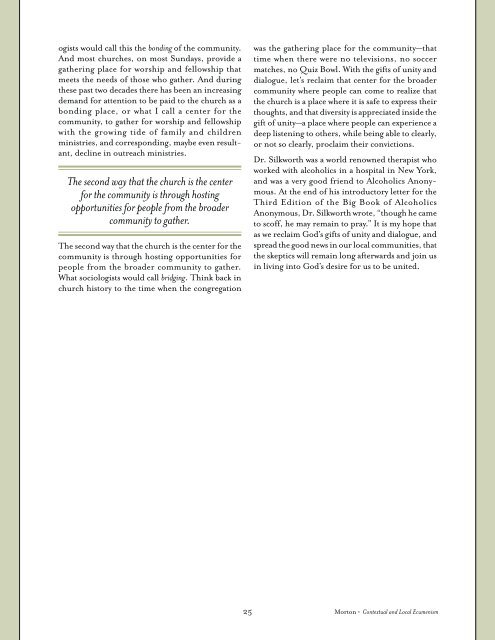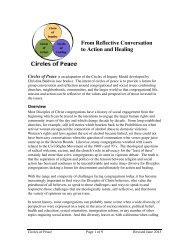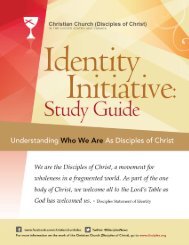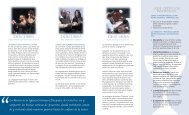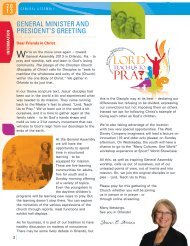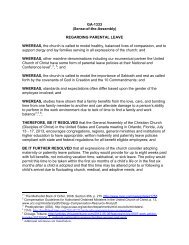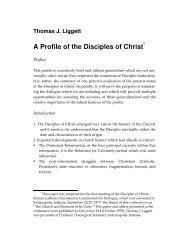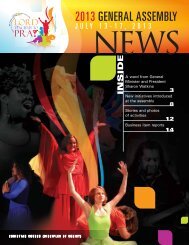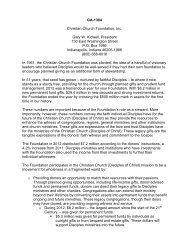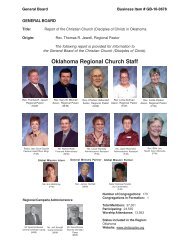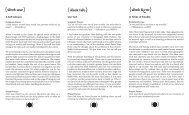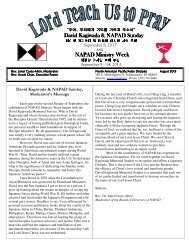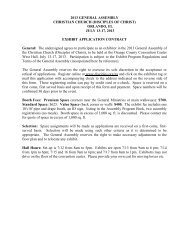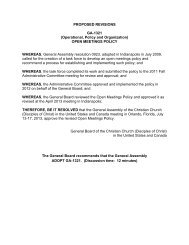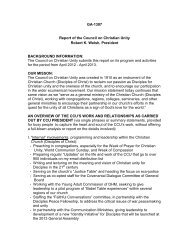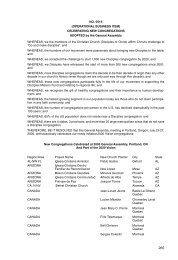RESOURCING THE CHURCH FOR ECUMENICAL MINISTRy A ...
RESOURCING THE CHURCH FOR ECUMENICAL MINISTRy A ...
RESOURCING THE CHURCH FOR ECUMENICAL MINISTRy A ...
You also want an ePaper? Increase the reach of your titles
YUMPU automatically turns print PDFs into web optimized ePapers that Google loves.
ogists would call this the bonding of the community.<br />
And most churches, on most Sundays, provide a<br />
gathering place for worship and fellowship that<br />
meets the needs of those who gather. And during<br />
these past two decades there has been an increasing<br />
demand for attention to be paid to the church as a<br />
bonding place, or what I call a center for the<br />
community, to gather for worship and fellowship<br />
with the growing tide of family and children<br />
ministries, and corresponding, maybe even resultant,<br />
decline in outreach ministries.<br />
The second way that the church is the center<br />
for the community is through hosting<br />
opportunities for people from the broader<br />
community to gather.<br />
The second way that the church is the center for the<br />
community is through hosting opportunities for<br />
people from the broader community to gather.<br />
What sociologists would call bridging. Think back in<br />
church history to the time when the congregation<br />
25<br />
was the gathering place for the community—that<br />
time when there were no televisions, no soccer<br />
matches, no Quiz Bowl. With the gifts of unity and<br />
dialogue, let’s reclaim that center for the broader<br />
community where people can come to realize that<br />
the church is a place where it is safe to express their<br />
thoughts, and that diversity is appreciated inside the<br />
gift of unity—a place where people can experience a<br />
deep listening to others, while being able to clearly,<br />
or not so clearly, proclaim their convictions.<br />
Dr. Silkworth was a world renowned therapist who<br />
worked with alcoholics in a hospital in New York,<br />
and was a very good friend to Alcoholics Anonymous.<br />
At the end of his introductory letter for the<br />
Third Edition of the Big Book of Alcoholics<br />
Anonymous, Dr. Silkworth wrote, “though he came<br />
to scoff, he may remain to pray.” It is my hope that<br />
as we reclaim God’s gifts of unity and dialogue, and<br />
spread the good news in our local communities, that<br />
the skeptics will remain long afterwards and join us<br />
in living into God’s desire for us to be united.<br />
Morton • Contextual and Local Ecumenism


